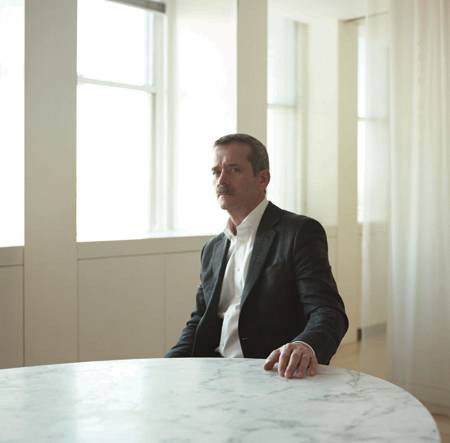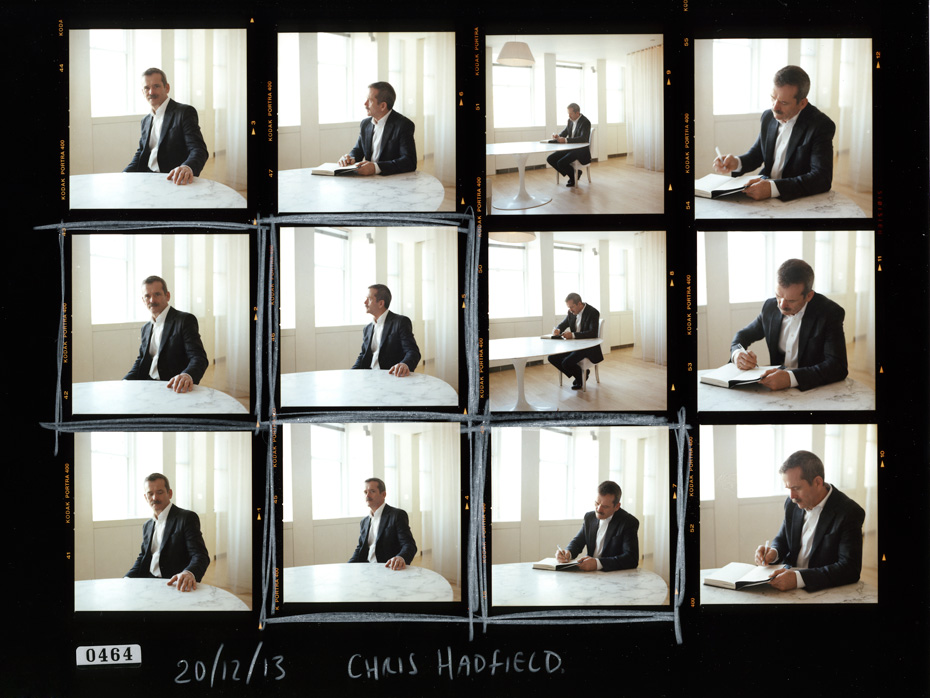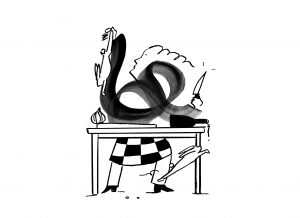The David Bowie-loving former astronaut on why riding a rocket-ship into space isn’t as terrifying as it seems
I am more than a little early for my meeting with Chris Hadfield – distinguished military fighter pilot, former commander of the International Space Station and certainly the most famous astronaut of the past few decades. This is, arguably, the first time in a long time that NASA has found itself a household name in the, now retired, spaceman – thanks in no small part to his cover version of David Bowie’s ‘Space Oddity’, recorded on the ISS, and his one million-plus Twitter followers. The way in which Hadfield went about promoting his work brought back a sense of wonder to an area of human endeavour that, for many years, became erroneously commonplace to the general public.
I’m early because I’m nervous. Astronauts are the very best of the very best – men and women with unwavering focus, extraordinary self-belief and ufnrivalled attention to detail. They understand rocket science and they’re brave. When Commander Hadfield enters the foyer of the hotel, he’s noticeably more athletic than pictures give him credit for, possessive maybe of the strength of a martial artist, and taller too. He’s concerned that the foyer is not private enough for our conversation and before I know it he’s off scouting for another setting. We end up next to the indoor swimming pool. Both couched on gold leather furniture, the sound of smooth jazz classics our soundtrack, it’s an undeniably odd scene in which to speak with anyone, let alone a famous astronaut. “I’ve got four of these at home,” Hadfield jokes, referring to the garish settee.
Firstly, I am keen to get his take on the concept of the overview effect – a term first coined by Frank White in his 1987 book The Overview Effect: Space Exploration and Human Evolution. It relates to a supposed cognitive shift that many astronauts have felt upon viewing Earth whilst in orbit. Spiritually, it’s been compared to the Hindu concept of savikalpa samadhi, a state of higher consciousness in which one becomes aware of the separateness of things whilst experiencing them as a unity, a feeling accompanied by ecstasy.

“The idea of the overview effect has become a little institutionalised in my opinion. It’s like trying to catalogue wonder. All the things that were physically and technically necessary to get you to that place do not prepare you to be emotionally or sensorially in that place. You are absolutely awash with sensory input but how do you capture that? How do you internalise that?”
I wonder, though, if he was ever concerned the eventuality might overwhelm him. “Something I learned a long time ago was how to focus on the critical next steps in order to not be overwhelmed with the enormity of what’s happening. What’s the next thing that’s going to kill me? Riding a rocket ship to space should be overwhelming, should be mind numbing, should be terrifying. But it’s not, because you break it down to all the little things you need to do to accomplish it.”

So says an understandably pragmatic thinker. Perhaps Hadfield’s attitude is indicative of the changing nature of space exploration, a product of lessons learned since the inaugural missions, as fewer astronauts return with life-altering perceptions or personal problems. There are more people, with that shared human experience, to offer advice on how to readjust. They are far busier with onboard experiments, with far greater access to family and friends, making space travel more prosaic but no less remarkable – “that combination of purpose and connectivity is what the first astronauts were lacking.” In this way, we’re beginning to better understand how our species might learn to live outside of our planet.
Given that he lived for five months aboard the ISS, does he believe space colonisation to be necessary and possible? “The short answer to both is: yes. Cynics would say that propagation of the human species is not worthwhile – I would disagree. We’ve always taken the best of our technology to spread as far as it will take us and now we have all the leading nations living permanently in space. Eventually, when the technology allows, certain places will become part of the expanded human experience. Right now, we’re just sailing round our own atmosphere but eventually we’ll be able to point the ship away.”
“Riding a rocket ship to space should be overwhelming, should be mind numbing, should be terrifying. But it’s not, because you break it down to all the little things you need to do to accomplish it”
I want to return, finally, to the sense of purpose he’d earlier touched upon. It’s a theme that runs throughout his book An Astronaut’s Guide to Life on Earth. The improbable goal of realising his childhood ambition could only be achieved by incrementally putting himself into a position whereby, little by little, he’d be evermore prepared. “Some people feel a sense of emptiness or purposelessness, or a lack of comfort. I don’t feel that way and never have. My particular sense of purpose comes from trying to do useful things. Something I learned from my dad is that there’s great joy in work. Not mindless work but something complex and challenging, to you. Knowing that something is better understood because of what you did – that’s a real purpose giver.”
Photography Josh Shinner




